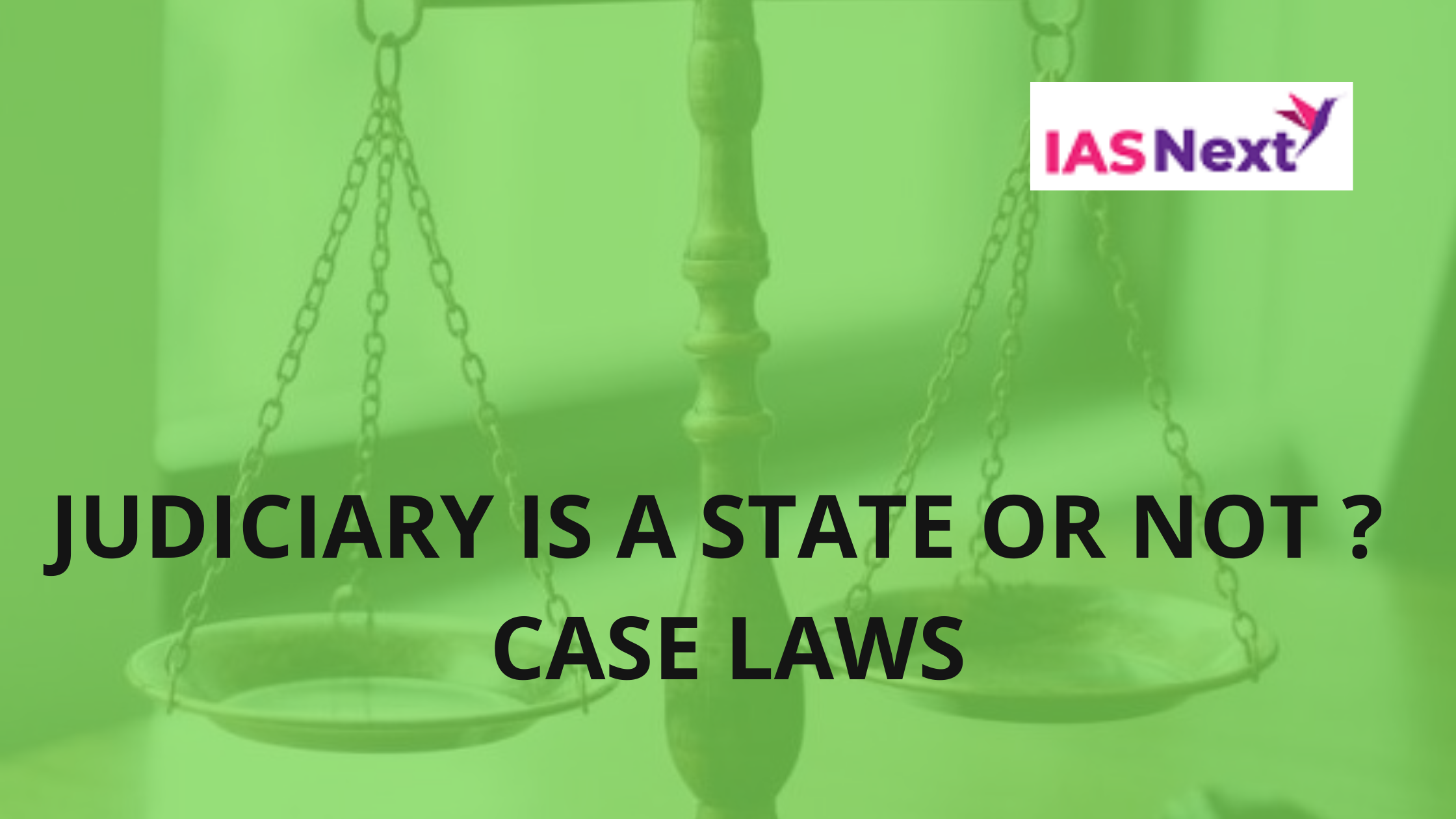CURRENT AFFAIRS
Get the most updated and recent current affair content on Padhaikaro.com
JUDICIARY IS A STATE OR NOT ? – CASE LAWS
- IAS NEXT, Lucknow
- 06, Oct 2021

Judiciary, though an organ of the state, is not specifically mentioned in Article 12, unlike the executive and the legislature. Whether the judiciary comes under the definition of ‘state’ or not depends on the type of function carried out by the courts.
- In the exercise of non-judicial functions such as administrative or legislative, the courts fall within the definition of ‘state’.
- However, in the exercise of judicial functions, the courts cannot be brought within the definition of the state.
Naresh Sridhar Mirajkar v. the State of Maharashtra, the issue before the court was whether a judicial order could be in violation of fundamental rights and if such judicial order amenable to writ?
The court, in this case, held that
“It is inappropriate to assume that a judicial decision pronounced by a court of competent jurisdiction can affect the fundamental rights of the citizens. What the judicial decisions purports to do is to decide the controversy between the parties brought before the court and nothing more.”
Therefore, the judiciary for discharge of its judicial functions cannot come under the definition of ‘state’ and is not amenable to the writ.
A.R.Antulay v. R.S.Naik, the court held that
court held that judiciary in exercise of its judicial functions does not come within the definition of ‘state’ under Article 12.
Riju Prasad Sarma v. State of Assam, it was held by the Supreme Court that when a court is acting in its judicial capacity, it cannot be considered as ‘state’. However, its administrative action is amenable to writ.